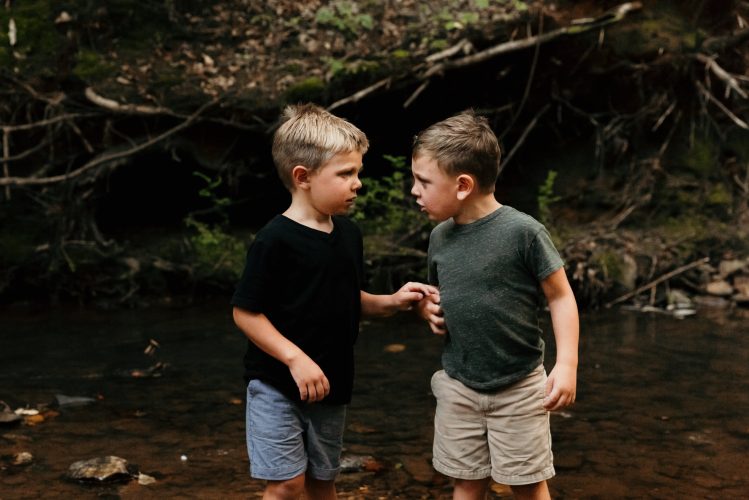The Power of Vulnerability: Embracing the Mud
In a world where social media often highlights the glossy, picture-perfect moments of life, the power of vulnerability remains profoundly underrated. Embracing this vulnerability can lead to deeper, more meaningful connections. Refusing to embrace vulnerability in relationships can lead to relational starvation.
The Complex Joy of Being Invited Into the Mud
There’s a complex joy in being invited into the mud with a friend. It’s an honor to sit with someone in their mess, to laugh together, and to hold space for their tears. When a friend lets you into their pain, it’s a sacred moment. I still think about a friend I had (who shall not be named-not like Voldemort, just for privacy) almost twenty years ago. We spent SO much of our time together and the majority of that time was spent deep within hysterical adventures. We were cut from the same cloth, wild ones at heart that were always down for a good time. Years we spent like this. And then I found out years and years down the line that she harbored a pain and never told me. She thought she was being strong. Didn’t want to burden our good time. But a phrase came to my mind during this conversation…”It’s not fair that we laughed together, but you cried alone.” I even remember a few times sharing some struggles I had, and she was there for me. I remember the wall she would put up when I would ask little questions about deeper subjects. I had a deep yearning for authentic connection, and settled for fun. She refused to give me the honor of sitting in her mud.
The Loneliness Epidemic
Loneliness is more than just a feeling; it’s a public health crisis. Statistics show that nearly half of Americans report feeling lonely. According to a 2018 Cigna study, loneliness levels have reached an all-time high, with nearly 61% of U.S. adults reporting sometimes or always feeling lonely. The effects of loneliness are profound, impacting mental and physical health. Thought expert Jennie Allen points out that consistent, meaningful connections with others can significantly improve our well-being. On the other side of the coin, social isolation is linked to higher rates of anxiety, depression, and even physical ailments such as heart disease and stroke. Dr. Caroline Leaf, a cognitive neuroscientist, emphasizes the importance of vulnerability in building authentic relationships. She explains that our brains are wired for connection, and vulnerability plays a critical role in forming these bonds. According to Dr. Leaf, when we open up to others, we activate neural pathways that foster empathy, trust, and emotional resilience. This neurological basis for connection underscores the importance of being vulnerable with our friends.
Social Media Adding Fuel
This sense of isolation highlights the urgent need for deeper connections and the courage to be vulnerable with one another. Social media has contributed to this in large part. We are “connected” through outlets but we have updates, not relationships. I ran into a high school classmate after not talking to her for literally a decade and asked about her kids by name. She was (reasonably) a little put off guard, but it dawned on me that I didn’t really know her like that, I just saw her posts on my social media feed. This false sense of connection is leaving us starving for true friendship. The remedy to this is authentic relationships.
The Privilege of Loving Another Human
Loving another human being is one of life’s greatest privileges. It’s a divine appointment to walk alongside someone, to share their burdens and joys. Interdependence is a God-thing, a reflection of His design for community. Proverbs 17:17 tells us, “A friend loves at all times, and a brother is born for a time of adversity.” This verse underscores the divine purpose of friendships, especially during life’s toughest moments.
Anti-Community: The Refusal to Ask for Help
Refusing to ask for help is anti-community. Read that again. A community shares. The Bible has so much to say about community and what helps it to thrive. Paul writes in Galatians 6:2, “Carry each other’s burdens, and in this way, you will fulfill the law of Christ”. Romans 12:15 says: “Rejoice with those who rejoice, and weep with those who weep”. Refusing to be vulnerable withholds a foundational piece of what makes a relationship thrive. When I know something is wrong, and you tell me you’re fine, you might as well slap me in the face. It denies the honor of sitting with you in your struggle, of being there for you. Now listen…
Past Hurts and Healing
I understand that people have hurt you in the past. To be vulnerable with EVERYONE is not wise. People breaking your trust can cast long shadows over your ability to be vulnerable. Hear me loud and clear on this: It’s essential to remember that your actions are a reflection of you, while others’ reactions are a reflection of them. By embracing this truth, we can begin to heal and open ourselves up to genuine connections. Vulnerability isn’t a weakness; it’s a strength that fosters resilience and deepens our bonds with others.
Diving into the Deep Waters of Friendship
The older I get, the less tolerant I become of staying in the kiddie pool with friends. No one gets hurt in the kiddie pool, but that shallow water gets hot quickly and probably because some toddler peed in it. Love is a deep ocean, full of risks and unknowns, but it’s mostly worth diving into. Yes, there are scary creatures in the ocean, but the reward of swimming in those depths far outweighs the fear. True friendships require us to venture beyond the shallow end and embrace the uncertainty of deeper waters. Adam Grant, an organizational psychologist, highlights the power of giving and vulnerability in building strong relationships. In his research, Grant found that the most successful and fulfilling relationships are those where individuals are willing to give selflessly and be vulnerable. Grant’s concept of “givers” in relationships supports the idea that by opening ourselves up and being generous with our time and emotions, we create stronger, more resilient bonds with our friends.
Conclusion
Giving in a relationship is not just of your time and your shoulder for another person. Giving means giving of yourself and allowing another person to be there for YOU. The power of vulnerability in friendships cannot be overstated. It’s an invitation to share in the mess, to laugh and cry together, and to build a community grounded in authenticity and love. Embracing vulnerability is a courageous act that transforms our relationships and enriches our lives. Let’s honor the privilege of loving others deeply, and dive into the profound joy of being truly known and loved.
Learn more about Armor Mental Performance here!




